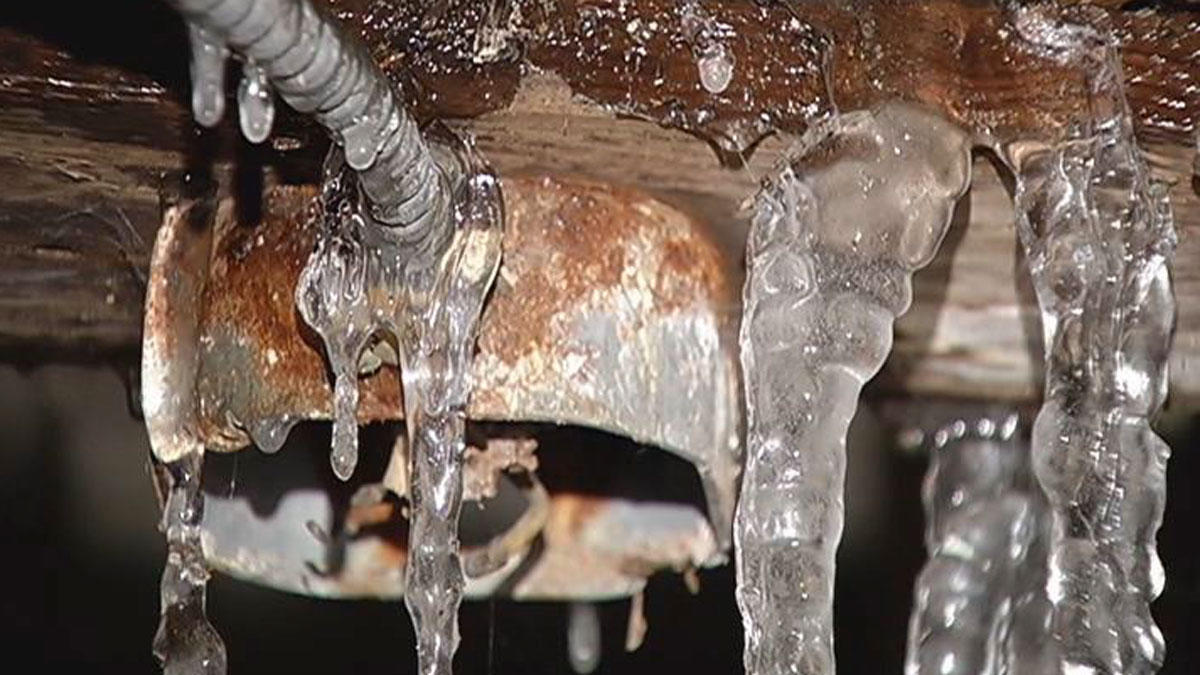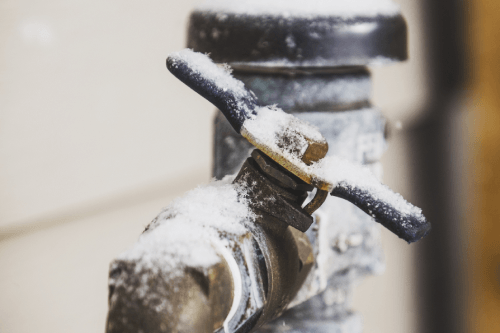Crucial Advice to Protect Against Frozen Plumbing in Cold Weather
Crucial Advice to Protect Against Frozen Plumbing in Cold Weather
Blog Article
What are your opinions about 6 Ways to Prevent Frozen Pipes?

Winter can ruin your plumbing, particularly by freezing pipes. Right here's exactly how to stop it from happening and what to do if it does.
Introduction
As temperatures drop, the risk of frozen pipes increases, potentially leading to costly repair work and water damage. Understanding how to stop icy pipelines is important for house owners in cold climates.
Avoidance Tips
Protecting susceptible pipes
Cover pipes in insulation sleeves or use warmth tape to safeguard them from freezing temperatures. Concentrate on pipes in unheated or external areas of the home.
Home heating methods
Maintain interior rooms effectively heated, specifically areas with pipes. Open cabinet doors to permit warm air to distribute around pipes under sinks.
Exactly how to recognize icy pipes
Seek reduced water flow from faucets, uncommon odors or sounds from pipes, and noticeable frost on revealed pipes.
Long-Term Solutions
Structural modifications
Take into consideration rerouting pipelines far from outside walls or unheated areas. Add extra insulation to attics, basements, and crawl spaces.
Upgrading insulation
Invest in premium insulation for pipes, attics, and walls. Proper insulation helps keep regular temperature levels and minimizes the danger of frozen pipes.
Shielding Exterior Plumbing
Garden tubes and exterior faucets
Disconnect and drain pipes garden hoses prior to wintertime. Install frost-proof faucets or cover outside taps with protected caps.
Understanding Icy Pipes
What triggers pipes to ice up?
Pipes freeze when revealed to temperatures listed below 32 ° F (0 ° C) for extended durations. As water inside the pipelines freezes, it broadens, taxing the pipe wall surfaces and possibly causing them to rupture.
Threats and problems
Frozen pipes can cause water system disturbances, residential or commercial property damage, and costly repair work. Burst pipelines can flooding homes and trigger comprehensive architectural damages.
Indications of Frozen Piping
Identifying frozen pipes early can prevent them from bursting.
What to Do If Your Pipelines Freeze
Immediate activities to take
If you presume icy pipes, keep taps open up to soothe stress as the ice melts. Use a hairdryer or towels taken in warm water to thaw pipes gradually.
Verdict
Stopping frozen pipelines needs proactive procedures and quick feedbacks. By comprehending the causes, indications, and preventive measures, home owners can safeguard their pipes during winter.
Helpful Tips to Prevent Frozen Pipes this Winter
UNDERSTANDING THE BASICS: WHY PIPES FREEZE AND WHY IT’S A PROBLEM
Water freezing inside pipes is common during the winter months, but understanding why pipes freeze, and the potential problems it can cause is crucial in preventing such incidents. This section will delve into the basics of why pipes freeze and the associated problems that may arise.
THE SCIENCE BEHIND FROZEN PIPES
When water reaches freezing temperatures, it undergoes a physical transformation and solidifies into ice. This expansion of water as it freezes is the primary reason pipes can burst. As the water inside the pipe freezes, it expands, creating immense pressure on the walls. If the pressure becomes too great, the pipe can crack or rupture, leading to leaks and water damage.
FACTORS THAT CONTRIBUTE TO PIPE FREEZING
Low Temperatures: Extremely cold weather, especially below freezing, increases the risk of pipes freezing. Uninsulated or Poorly Insulated Pipes: Pipes located in unheated areas, such as basements, crawl spaces, or attics, are more prone to freezing. Insufficient insulation or lack of insulation altogether exacerbates the problem. Exterior Wall Exposure: Pipes running along exterior walls are susceptible to freezing as they encounter colder temperatures outside. Lack of Heating or Temperature Regulation: Inadequate heating or inconsistent temperature control in your home can contribute to frozen pipes. PROBLEMS CAUSED BY FROZEN PIPES
- Pipe Bursting: As mentioned earlier, the expansion of water as it freezes can cause pipes to burst, resulting in significant water damage.
- Water Damage: When pipes burst, it can lead to flooding and water damage to your property, including walls, ceilings, flooring, and personal belongings.
- Structural Damage: Prolonged exposure to water from burst pipes can compromise the structural integrity of your home, leading to costly repairs.
- Mold and Mildew Growth: Excess moisture from water damage can create a favorable environment for mold and mildew growth, posing health risks to occupants.
- Disrupted Water Supply: Frozen pipes can also result in a complete or partial loss of water supply until the issue is resolved.
WHY CERTAIN PIPES ARE MORE PRONE TO FREEZING
- Location: Pipes located in unheated or poorly insulated areas, such as basements, crawl spaces, attics, or exterior walls, are at higher risk of freezing.
- Exterior Pipes: Outdoor pipes, such as those used for irrigation or exposed plumbing, are particularly vulnerable to freezing as they are directly exposed to the elements.
- Supply Lines: Pipes that carry water from the main water supply into your home, including the main water line, are critical to protect as freezing in these lines can affect your entire plumbing system.
- Underground Pipes: Pipes buried underground, such as those connected to sprinkler systems or outdoor faucets, can be susceptible to freezing if not properly insulated.
https://busybusy.com/blog/helpful-tips-to-prevent-frozen-pipes-this-winter/

We had been shown that report about How To Avoid Freezing Pipes from an acquaintance on our other domain. Be sure to pause to share this blog posting if you liked it. Many thanks for your time. Revisit us soon.
Schedule Here Report this page